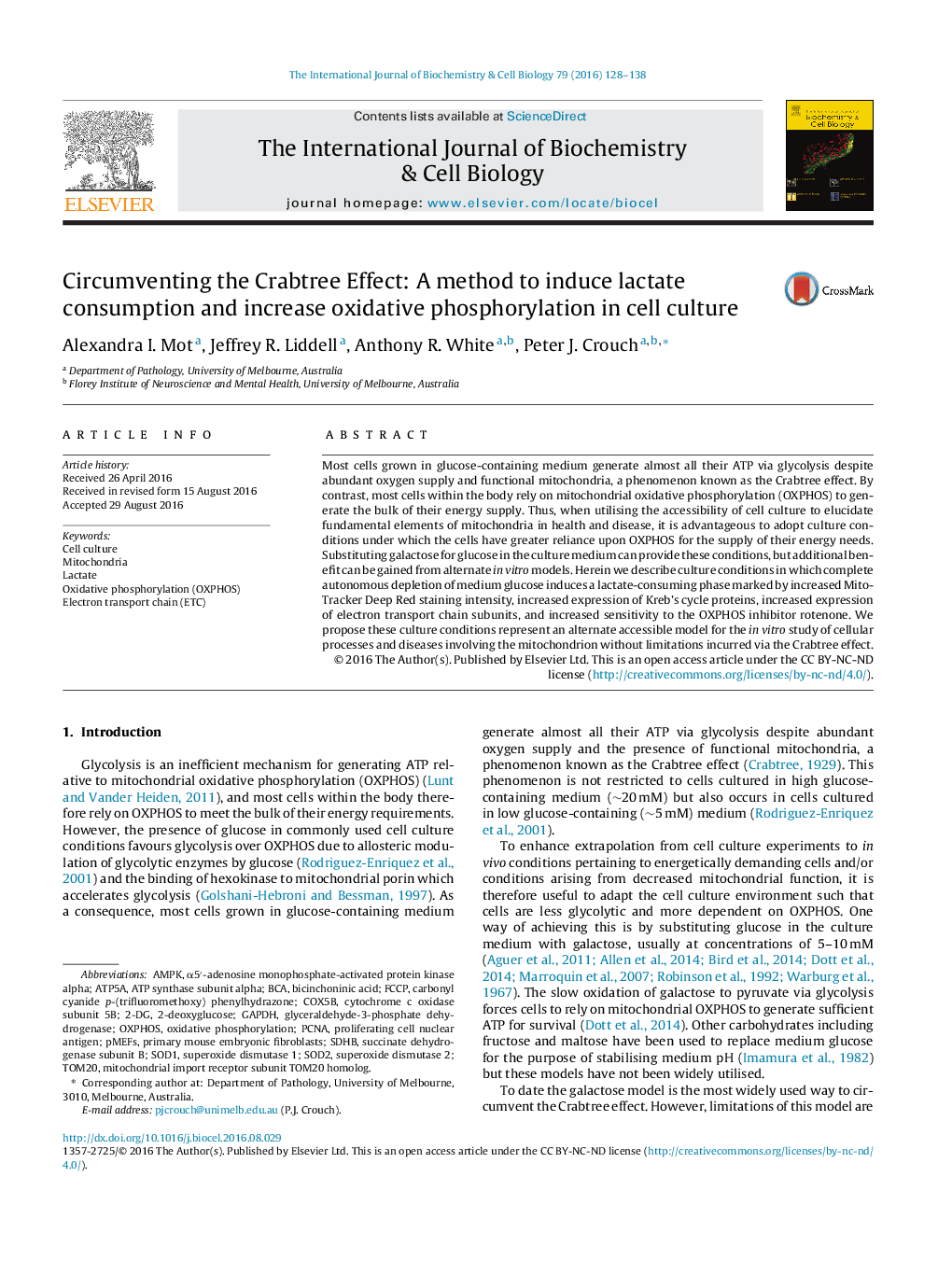| Article ID | Journal | Published Year | Pages | File Type |
|---|---|---|---|---|
| 8322247 | The International Journal of Biochemistry & Cell Biology | 2016 | 11 Pages |
Abstract
Most cells grown in glucose-containing medium generate almost all their ATP via glycolysis despite abundant oxygen supply and functional mitochondria, a phenomenon known as the Crabtree effect. By contrast, most cells within the body rely on mitochondrial oxidative phosphorylation (OXPHOS) to generate the bulk of their energy supply. Thus, when utilising the accessibility of cell culture to elucidate fundamental elements of mitochondria in health and disease, it is advantageous to adopt culture conditions under which the cells have greater reliance upon OXPHOS for the supply of their energy needs. Substituting galactose for glucose in the culture medium can provide these conditions, but additional benefit can be gained from alternate in vitro models. Herein we describe culture conditions in which complete autonomous depletion of medium glucose induces a lactate-consuming phase marked by increased MitoTracker Deep Red staining intensity, increased expression of Kreb's cycle proteins, increased expression of electron transport chain subunits, and increased sensitivity to the OXPHOS inhibitor rotenone. We propose these culture conditions represent an alternate accessible model for the in vitro study of cellular processes and diseases involving the mitochondrion without limitations incurred via the Crabtree effect.
Keywords
carbonyl cyanide p-(trifluoromethoxy) phenylhydrazoneATP5ATOM202-DeoxyglucoseSOD2AMPKSOD1FCCPBCAATP synthase subunit alphaSDHBGAPDHOXPHOSSuccinate dehydrogenase subunit BPCNA2-DGProliferating Cell Nuclear Antigenbicinchoninic acidsuperoxide dismutase 1Superoxide dismutase 2Oxidative phosphorylationOxidative phosphorylation (OXPHOS)LactateMitochondriaCell cultureglyceraldehyde-3-phosphate dehydrogenase
Related Topics
Life Sciences
Biochemistry, Genetics and Molecular Biology
Biochemistry
Authors
Alexandra I. Mot, Jeffrey R. Liddell, Anthony R. White, Peter J. Crouch,
